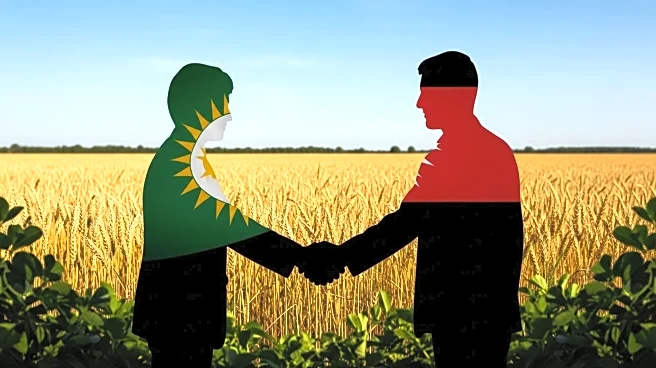What's Happening?
The Niger State Government has signed a multi-billion-dollar agreement with the Republic of Benin to enhance agricultural production, focusing on cotton, maize, and soybeans. The Memorandum of Understanding (MoU) was signed in Cotonou, with Governor Mohammed Umaru Bago representing Niger State and Jean Patrick Yekpe, CEO of Sonama AG Mech Ltd., representing Benin. The initiative, known as the 'Cotton Common Platform Project,' aims to increase cotton production to 450,000 tonnes in Niger State by 2030. The project will also cover maize and soybean production across 550,000 hectares, starting with 20,000 hectares and expanding over five years. The partnership includes establishing 55 technical centers for training and leveraging Niger State's land for joint agricultural research.
Why It's Important?
This agreement is significant as it aims to transform West Africa's agricultural landscape by creating over one million jobs and promoting mechanized farming. The collaboration is expected to establish a sustainable agricultural ecosystem through crop rotation and irrigation. By reducing food importation and generating an estimated $739 million annually, the project could significantly impact the region's economy. The initiative also strengthens trade relations between Niger and Benin, potentially setting a precedent for similar collaborations in the region. The involvement of international investors and the empowerment of sub-national governments highlight a shift towards more localized and impactful economic strategies.
What's Next?
The phased rollout of the project will begin with identifying suitable locations for crop production and engaging with host communities. As the project progresses, it will be crucial to monitor the implementation of modern agricultural techniques and the establishment of technical centers. The success of this initiative could lead to further international investments and collaborations in the region. Additionally, the project's impact on local economies and job creation will be closely watched by stakeholders and could influence future agricultural policies in West Africa.











